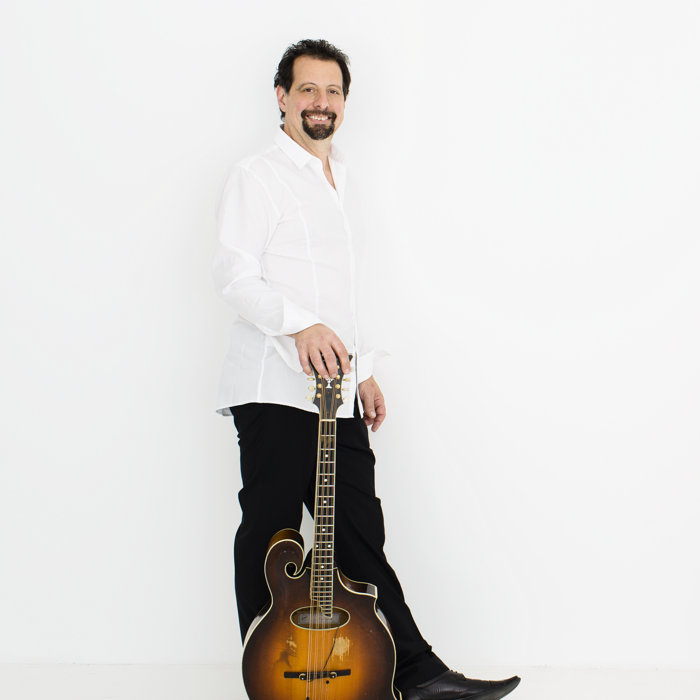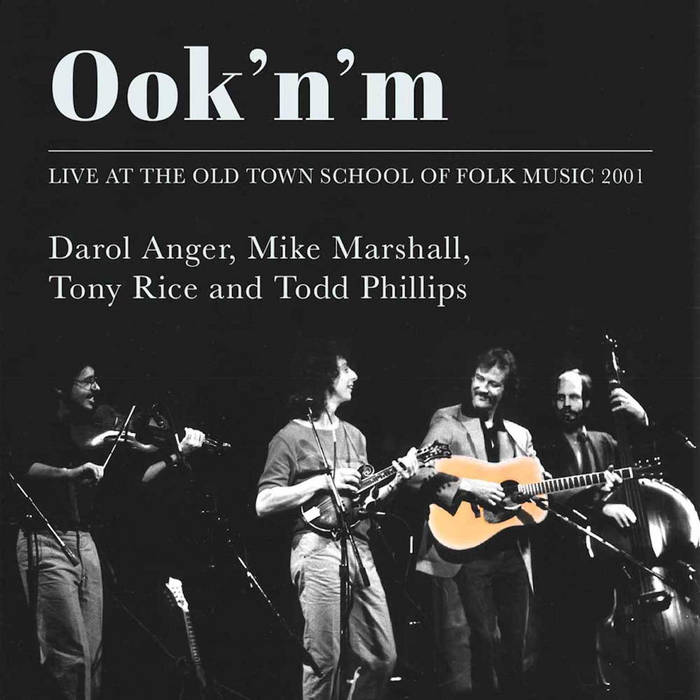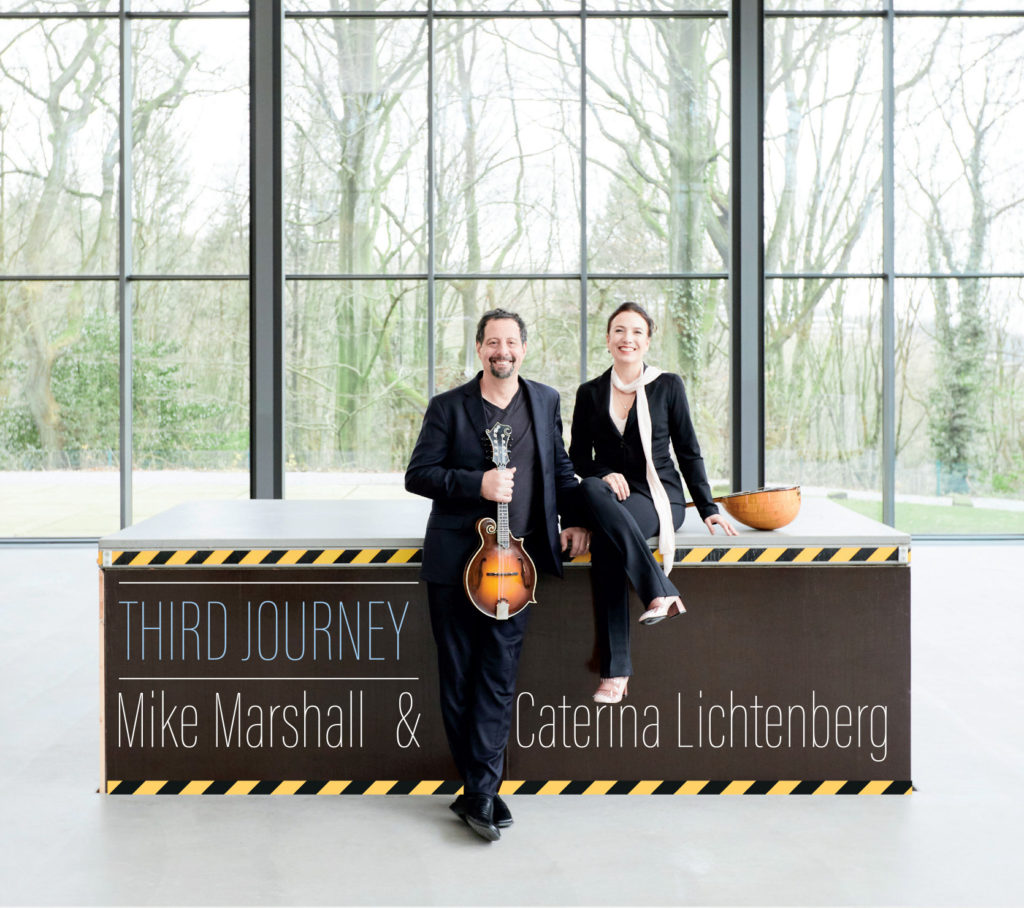SERIES: INTERVIEWS WITH PERFORMING MUSICIANS – Mike Marshall (Part 2 of 4)
November 14th, 2010 | Author: Vicki Ambinder
Here is the second installment of my four-part interview with multi-instrumentalist, world-touring musician, prolific record producer, and Adventure Music recording artist Mike Marshall. You can find Part 1 here. The third installment of our conversation will be posted in one week. –VA
Do you feel that you have mastery of your instruments?
Mike Marshall: I have a certain degree of it. And, of course, no matter how much of it you have, you’re able to see the next mountain. Because all that climbing one mountain gives you is a vista to see the next. And so it’s an endless journey, one that nobody can ever get to the end of.
That’s so interesting to me, because most of us mere mortals would look at your playing and go, well, he can do anything.
MM: Well, it’s not anything – I mean, there are limits. There’s just the basic physical limits of how fast your fingers can move. And maybe that’s a good thing, because I’m not sure people could hear much faster than Chris Thile!
Or the action on the mandolin can get any lower.
MM: Right! But there are so many things to strive for in music. There’s the technical, and there’s the emotional, and there’s the compositional. And to improve in all of those areas is just a life’s work. And the kind of access that all of us have now just opens up the realm of what is music and where should it go next, and what’s my tiny little part in that.
How are you answering those questions?
MM: I just try to make the most of each day, you know? I wish there were many more hours in each day, and every day I try to work on something. There’s piles of things here that are going to happen, maybe – I’ll get them together eventually. And that includes specific tunes that I’m working on, usually Bach or something challenging – classical music. Or tunes that I’m trying to write but I haven’t completed, or projects that I want to record and I have to put together all the pieces that it takes to make a project.
At the same time, there’s the endless floating demon of the music business, and how that all fits into paying one’s rent and living in the world. And it’s a challenge that everyone has, living in this kind of capitalist society with these kinds of demands. It’s difficult to find a patron you can go live with like they did in the old days, or a church, you know, who you can just write music for and they’ll take care of all of life’s necessities! So you dance through all those different things, and at the same time you push yourself – try to make a living and try to push yourself as an artist.
What’s the best advice that you got coming up – specifically around performance?
MM: You know, it might not have been something somebody said, but I can point to a couple of people who, just seeing how they did it, said everything to me. And I would say that that’s probably some combination of John Hartford, Vassar Clements, Sam Bush, Glenn Gould, and Bobby McFerrin.
Interesting combination!
MM: All of them, for me, embody that feeling of letting yourself go and not being in the here and now, or being totally in the here and now and not caring about what people think – not being embarrassed by looking like an idiot. Being totally comfortable in your own idiot-ness.
Do you ever watch video of yourself?
MM: No, I hate it – it drives me crazy. I can’t watch that stuff.
Do you have a sense of what is going on, even if you’re not really paying attention to it?
MM: I have what I think is going on, but when I watch a video that’s not what I see!
What do you think is going on, and how is it different from what you see?
MM: I mean, I’m just there enjoying the time, and trying to play as well as I can, and I’ll see things. Like, why do I do that silly thing with my leg? What am I doing? I’m tapping completely out of time! What the hell is that? And, of course, I have no memory of doing it. And maybe that’s a good thing – maybe that’s where we should be. So that’s why I can’t watch it. I’m not really there, you know, when I’m playing. Music should be taking you out into the other dimension.
What percentage of the time do you think you’re in the zone when you’re playing?
MM: Interesting question. Boy, it varies greatly from band to band. And you can slip in and out from moment to moment.
What kinds of things make it easier for you to get in the zone?
MM: Well, it depends on what you’re talking about. I’m mixed about it being the ultimate expression of a perfect performance – you know, that this person was totally in the zone, and that’s why this music is affecting us the way it is, or that’s why this performance is so great, because this person went in the zone and stayed in the zone the whole time. I don’t necessarily think that’s the case. I think that music is so complex, that one man’s zone is another man’s, “Oh, god, you gotta be kidding me!” And so the audience is part of that, you know, that they’re maybe giving you license to go there or not.
I’ve been incredibly moved, and thought that somebody was hitting a really high place in their performance – somebody who I had maybe seen play many times, and thought I was seeing one of the highest expressions of their art – and then gone backstage and them just be completely depressed because they thought they were just crashing and dying. And the same thing has happened to me, where I’ve been onstage just thinking, “Oh, god, I just cannot get it together! What is wrong with me?” and then go backstage and somebody comes back there and says, “That show changed my life.” And so I’m realizing that I’m not necessarily a good gauge of what the hell’s actually going on here, and I’d better just shut up and do my job, and go out there and try to play as good as I can, and enjoy the melodies, and enjoy the experience, because somebody might be loving it.
Do you think there’s some amount of letting go of needing to control the situation that may play into that?
MM: Well, you know, this is again that dance – that’s those two trains again. One train is complete control, because you’ve got to be in tune, and you’ve got to be in time, and you have to remember the notes, and you have this list, this checklist of things that for every single millisecond has to be checked off, right? And at the same time, you know that the only way you’re actually going to be able to do all that stuff is if you forget about it. There must be layers in the brain – I mean, that’s where practice comes in, where you can get the notes so far under your fingers that you know they’re going to be there, and now you can start thinking about, well, what do I want to do with this notes? How do I want to really play them, now that I know there going to come out? So then you can start thinking about the other dimension of expression. And I can also start to listen to the other musicians onstage – hello, there’s other people up here! – and place my notes in relationship to them, and surprise them, and have them be a part of the interaction, and have the audience see that.
And it must be so interesting for you to be constantly mixing up who you’re playing with, and the material, and the kind of material.
MM: Yeah, that’s a challenge. I mean, there are months where I am playing, like, six completely different sets of repertoire, with whole different demands on me. You know, one is Psychograss – ok, all those David Grier melodies and Tony Trischka bizarre tunes. Then here comes Hamilton de Holanda from Brazil – you know, he’s just an absolute monster, and lived in that tradition his whole life and is ready to tear my head off. And then here comes Thile, and we have to remember all those tunes that we wrote three years ago that are impossible.
Yeah, that are impossible when you’re at the top of your game!
MM: Yeah! And then I’m playing classical music with Caterina Lichtenberg, and it’s all about appropriate Baroque interpretation. And so you just try to get yourself ready, try to do your homework so that you can have fun with it.
How do you prepare for a show?
MM: Well, it’s triage, you know? It’s whatever thing needs the most work at the time. You know, I’ve got a tiny bit of an open space right now because I don’t have a show for a few weeks. I have the Turtle Island String Quartet – I’m playing shows with them now, and there’s some very challenging music there. So I’ve got about three weeks to get that music together, so that’s what I’m working on at the moment. At the same time, Caterina and I are working on the 15 two-part inventions of Bach, and I’m playing the left hand on the mandocello and she’s playing the right hand on the mandolin. And it fits perfectly on the mandocello.
But I’ve never really had a cello lesson – I just grabbed that instrument and just started playing it, caveman style, and invented a few things and figured out my own music, wrote tunes on it, and played a little bit of Bach here and there. But to play all these things? Oh my god, you have to have complete control of the whole instrument, and shift in and out of bass clef and treble clef. And learning how to shift on a cello, you have to shift many more times – even though it’s tuned in fifths, you have to shift a lot more than on a mandolin or fiddle. So it’s opening up my head to that whole world. And it’s great – it’s like a big, long-term challenge, and we won’t record it probably for a year because we’ll want to perform it a bunch.
And your sense of scale would be so different.
MM: Yeah. We played three or four of them in concert, and had a ball – it’s going to be great. But I really have to have this stuff under my fingers. Because on top of the notes, and the challenge of playing the notes, is Caterina’s concept of how this stuff should be phrased, and where the accents should be, and how to do the trills and the cadences.
Do you ever think about taking cello lessons?
MM: Yeah, I’m definitely going to. I was working on the Bach 1st [Cello] Suite today, and I’m definitely going to go see a cellist and talk about fingerings. I’ve got a lot of questions. It changes everything – the way you finger something changes how the accents fall, and it’s just really important.
And you’re not using a bow!
MM: Well, yeah, there’s that! Hey, maybe that’s the problem! I thought I had a bow with this – I’ll have to look in that case again. Yeah, you have to pluck every note. In a way, the right hand’s ok – I’ve got that kind of down because that’s where I’ve lived my whole life. It’s the left hand that’s very interesting. You use open strings to shift up the neck, and there’s some logical things. And, also, this is piano music. So there’s certain kinds of arpeggios that are just triads, but god, they don’t lay worth a shit on an instrument tuned like this, but maybe on piano they just fall right out of the sky. That’s probably the case. But I love a challenge. It seems like I’m the kind of guy who just has to have something like this to work on.
To be continued…



